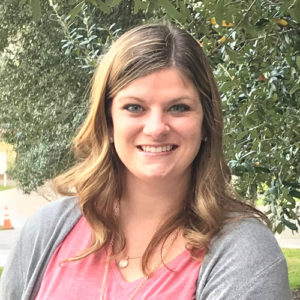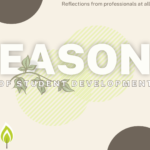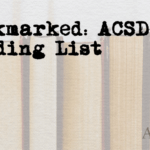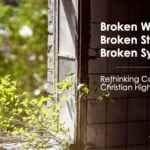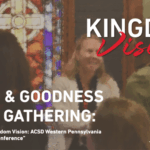Last June, Dr. Ryan Erck (2021) made a case for actively engaging in the good work of assessment within student affairs. As an assessment representative on campus, I am used to faculty and staff cursing the day (and me!) when annual assessment reports are due. Assessment reports are often viewed as a mere compliance exercise for regional accreditation agencies (e.g., SACSCOC). In my work, however, I am striving to change the rhetoric and attitudes about assessment to be more reflective of our Christian identity and corresponding desire to be faithful in our work.
We all want our students to have positive experiences at our institutions, and we all want to improve areas of practice that maybe aren’t as good as they could be. Good assessment practice allows our decisions to be informed by data and to evidence necessary change. Although we might all agree with this in theory, far too often we find ourselves saying, “This is how we’ve always done it.” This phrase is the quickest way to kill good assessment practice.
Dr. Ben Cox, Director of Institutional Planning and Assessment at Baylor University, always posits that assessment should be (1) missional, (2) meaningful, and (3) manageable (Baylor University, n.d.).
1. Missional
Assessment supports and aligns with the collective broad-picture goals and mission of the University.
2. Meaningful
Assessment collects data that is helpful to the work of the University and/or department or unit represented in the assessment, contributing to decision-making for improvement.
3. Manageable
Assessment is built into the fabric of practice of the unit, and is reasonable and sustainable in its implementation.
If your assessment cannot be characterized by these three elements, then perhaps you are assessing the wrong things, have not chosen the right measurement, are trying to assess too many elements, or your assessment process is too convoluted. Go back to the drawing board and start afresh, keeping the aforementioned characteristics in mind.
By emphasizing these characteristics, I believe we can make progress in changing “assessment” from a four-letter word to being viewed as a more meaningful and insightful process. I believe meaning and insight would arise if all unit or department members discuss the results of annual assessment means, analyze the findings, and plan changes to be made in the next year in order to improve the service, support, operation, curriculum, etc.
Going back to the drawing board doesn’t have to be overly burdensome! In reality, student affairs professionals already naturally “do” assessment—we observe what does or doesn’t work, and we pivot to make improvements. The formal annual assessment report is simply a way to articulate to others what you do naturally in your work and to highlight areas of celebration and/or areas of concern that may have been missed without examining annual and longitudinal data.
So, the next time your annual assessment report is due, use it as an opportunity to reflect, examine evidence, and plan for the future. If not, assessment is simply a missed opportunity and one more item to mark off of the annual to-do list.
Suggestions for Practice
- Schedule a meeting with your assessment professional on campus to talk about your assessment plan/report. Get the guru’s feedback on what your unit has done well and what could use improvement. I promise–we aren’t all scary.
- Assess your assessment. Is it (1) missional, (2) meaningful, and (3) manageable?
- Be an assessment advocate. Support a positive assessment culture where it is seen as an opportunity for growth.
- Make a plan. How and when are you going to assess your practices, student learning, operations, services, etc. this year? What are your criteria for success (i.e., targets)? How will you and your team review the assessment results? Then, use your analysis of results to drive your plans for making improvement(s).
References
Baylor University. (n.d.). Assessment Overview. https://www.baylor.edu/ie/index.php?id=43064
Erck, R. (2021, June 16). Ideas in Action No.1: Assessing Our Assessment. ACSD Ideas. https://acsd.org/ideas-in-action-no-1-assessing-our-assessment/


